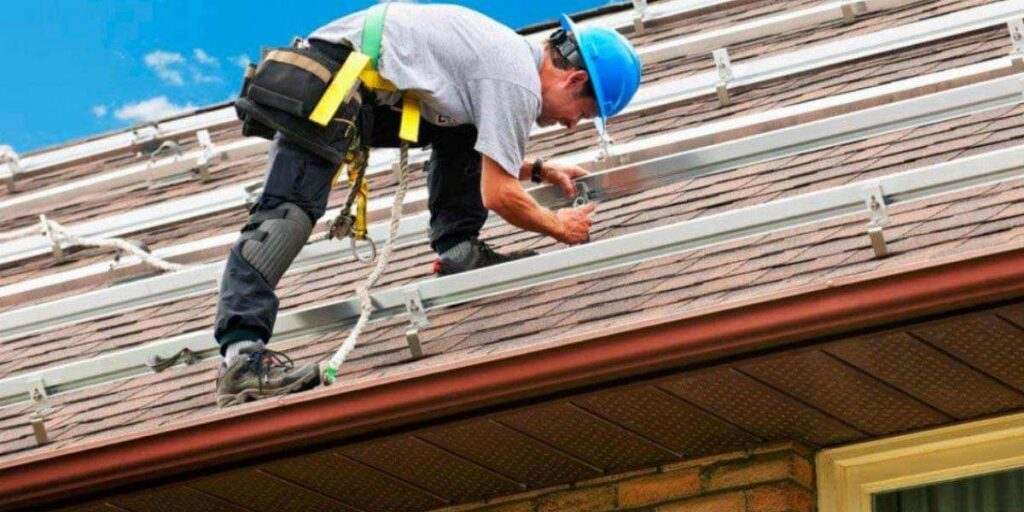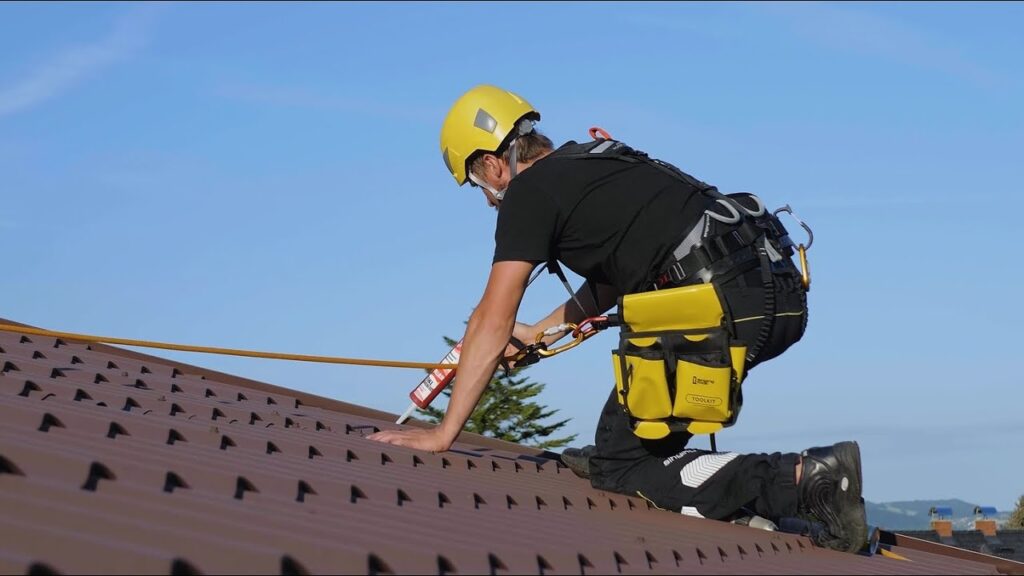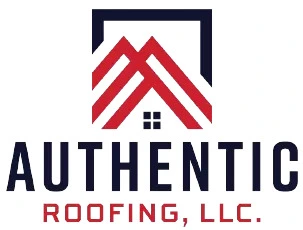Whether you’re running a cozy cafe or a bustling tech startup, ensuring the safety of your workplace is of paramount importance. One aspect that often gets overlooked is roofing safety. A well-maintained roof not only protects your business from the elements but also safeguards your employees and customers. In this article, we’ll delve into essential roofing safety measures that every Plano business owner should be aware of. So, grab a cup of coffee and let’s explore this guide by Authentic Roofing on how you can keep your workplace safe from the top down!

The Importance of Roofing Safety
Before we dive into the specifics, let’s emphasize why roofing safety matters. A stable roof isn’t just about preventing leaks; it’s about ensuring the overall security and well-being of your business environment. A damaged roof can pose serious risks, such as water damage, mold growth, and even structural instability. Moreover, taking proactive measures to maintain your roof safeguards everyone who steps foot inside your establishment. Remember, a stitch in time saves nine – addressing roofing concerns early on can save you significant costs and headaches down the road. Moreover make sure your roofing contractor is familiar with all these precautions of roofing safety, and if you’re not satisfied with your contractor, consider seeking out for other contractors as your safety is top priority.
Regular Inspections: The Foundation of Safety
Scheduled roof inspections are your first line of defense against potential hazards. Engage a professional roofing contractor to inspect your roof at least twice a year, ideally before the start of rainy and stormy seasons. Inspections can identify loose shingles, cracks, deteriorating flashing, and other issues that might compromise your roof’s integrity. These experts can also provide recommendations for repairs or maintenance, preventing minor problems from escalating into major disasters.
Choose Quality Materials
When it comes to roofing materials, never compromise on quality. Opt for materials that are known for their durability and ability to withstand Plano’s varying weather conditions. High-quality shingles, tiles, or metal roofing can make a significant difference in the longevity of your roof. Investing in choosing a high-quality roofing system might seem costlier, but they’ll pay off in the long run by reducing the frequency of repairs and replacements.
Prioritize Drainage
Effective drainage is crucial to prevent water from pooling on your roof. Poor drainage can lead to water seepage, leaks, and even roof collapse in extreme cases. Regularly clean out gutters and downspouts to ensure smooth water flow. If you notice any signs of clogging, address them promptly. Additionally, consider installing a proper drainage system that directs water away from your building’s foundation, preventing potential structural damage. Consider installing a high quality roofing system to prevent these types of dangers, it sure is costly but worth it for your own safety
Safety Equipment and Training
If your business involves any work on the roof, such as maintenance or repairs, provide your employees with the necessary safety equipment and training. Proper harnesses, non-slip footwear, and helmets can significantly reduce the risk of accidents. Ensure that your team is well-versed in the correct procedures for working on roofs safely. Regular safety training sessions can refresh their knowledge and keep them up-to-date with the latest safety protocols.
Emergency Preparedness
Even with all the preventive measures in place, emergencies can still occur. Have a well-defined emergency plan that outlines steps to take in case of a roofing-related incident. This plan should include procedures for evacuating the building safely, contacting emergency services, and addressing potential hazards. Conduct drills with your employees so that everyone knows what to do in a crisis. Being prepared can make a world of difference when seconds count.

Signs of Trouble: When to Act
Being vigilant about potential roofing issues is key to maintaining a safe environment. Keep an eye out for signs of trouble, such as water stains on ceilings, mold growth, sagging areas, or visible damage to the roof. Ignoring these signs could lead to more extensive damage and higher repair costs. As soon as you spot any red flags, contact a professional roofing contractor to assess the situation and recommend appropriate actions.
Roof Access Control: Limiting Unauthorized Entry
Controlling access to your roof is an often overlooked aspect of safety. Unauthorized access can lead to accidents, vandalism, or theft. Secure access points with locks, gates, or even security cameras to deter trespassers. Educate your employees about the risks associated with roof access and implement a strict policy that prohibits unapproved personnel from venturing onto the roof. By maintaining control over who can access your roof, you’re minimizing potential risks and ensuring a safer environment for everyone.
Seasonal Maintenance: Tailoring Care to the Elements
Plano experiences a range of weather conditions throughout the year, from scorching summers to chilly winters. Tailoring your roof maintenance to these seasonal changes is crucial. Before summer hits, ensure your roof is ready to withstand the intense heat and potential storms. Similarly, in winter, take measures to prevent ice dams and snow accumulation that can cause leaks and water damage. By addressing seasonal challenges head-on, you’re prolonging the life of your roof and reducing the likelihood of unexpected problems arising.
Professional Partnerships: Building Relationships with Roofing Experts
Establishing a strong relationship with a reputable roofing contractor can be a game-changer for your business’s safety. Partner with professionals who have a track record of excellence in roofing services. Regular communication with your chosen contractor allows you to stay informed about the condition of your roof and receive timely recommendations for repairs or replacements. A reliable roofing partner can provide you with peace of mind, knowing that experts are just a call away whenever roofing issues arise.
Roof Access Control: Limiting Unauthorized Entry
Controlling access to your roof is an often overlooked aspect of safety. Unauthorized access can lead to accidents, vandalism, or theft. Secure access points with locks, gates, or even security cameras to deter trespassers. Educate your employees about the risks associated with roof access and implement a strict policy that prohibits unapproved personnel from venturing onto the roof. By maintaining control over who can access your roof, you’re minimizing potential risks and ensuring a safer environment for everyone.
Seasonal Maintenance: Tailoring Care to the Elements
Plano experiences a range of weather conditions throughout the year, from scorching summers to chilly winters. Tailoring your roof maintenance to these seasonal changes is crucial. Before summer hits, ensure your roof is ready to withstand the intense heat and potential storms. Similarly, in winter, take measures to prevent ice dams and snow accumulation that can cause leaks and water damage. By addressing seasonal challenges head-on, you’re prolonging the life of your roof and reducing the likelihood of unexpected problems arising.
Professional Partnerships: Building Relationships with Roofing Experts
Establishing a strong relationship with a reputable roofing contractor can be a game-changer for your business’s safety. Partner with professionals who have a track record of excellence in roofing services. Regular communication with your chosen contractor allows you to stay informed about the condition of your roof and receive timely recommendations for repairs or replacements. A reliable roofing partner can provide you with peace of mind, knowing that experts are just a call away whenever roofing issues arise.
FAQs:
What are the OSHA requirements for roof safety?
OSHA mandates fall protection for workers on roofs over 6 feet high, including guardrails, safety nets, or personal fall arrest systems.
What are the safety measures for roof work?
Safety measures include proper training, wearing appropriate personal protective equipment (PPE), secure scaffolding, fall protection, and regular equipment inspections.
What is the most protective measure for roofers?
The most protective measure for roofers is using a personal fall arrest system, which prevents falls and reduces the impact of falls if they occur.
What requirements has OSHA recently changed for fall protection on roofing projects?
As of 2019, OSHA eliminated the use of a “warning line” system alone for fall protection on low-slope roofs, requiring the use of a guardrail, safety net, or personal fall arrest system.
Conclusion
In the bustling world of business, it’s easy to focus on day-to-day operations and overlook the importance of a well-maintained roof. However, taking roofing safety seriously can save you from costly disruptions, protect your employees and customers, and contribute to the longevity of your establishment. By conducting regular inspections, using quality materials, ensuring proper drainage, providing safety equipment and training, preparing for emergencies, and staying vigilant for signs of trouble, you’re taking proactive steps to secure your business from the top down. So, Plano business owners, let’s keep those roofs over our heads strong and safe!
